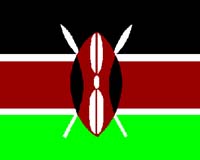 |
Cairo (AFP) Dec 6, 2009 Divisions within OPEC have eased as the dual threat of the global economic crisis and climate change talks force oil producers to be pragmatic and unified, analysts said on Sunday. Two years ago, when oil prices soared to nearly 100 dollars a barrel, the oil exporters cartel, which includes both allies and foes of the United States, was severely tested. The Organisation of Petroleum Exporting Countries was then torn between price hawks like Algeria, Iran, Libya and Venezuela on one side and nations like Saudi Arabia which wanted moderate prices in the interests of consumers. But the stance of the price hawks has since lost support, leading to a convergence of positions within the bloc. Less than three weeks ahead of the next OPEC meeting in Luanda, Angola, the group's oil ministers agree that quotas must remain at their current level of 24.84 million barrels per day (bpd). Even US arch-foes Iran and Venezuela support that view. Although the price of oil is trading at around 75 dollars a barrel, nobody is daring to ask for 100 dollars. Observers say this unity has come about largely thanks to pragmatism instilled into producers by the events of 2008: an unprecedented price surge to 147.50 dollars a barrel, followed by a plunge to 32.40 dollars in December. "What happened makes you think. An oil price of 75 dollars is higher than they could have hoped for. Even the most hawkish nations are finding it hard to ask for more," said Francis Perrin of the Oil and Gas Journal. This turnaround came about because producers were afraid of another price collapse, according to Julian Lee, analyst at the Centre For Global Energy Studies in London. "They still have a big fear of oil (prices) falling ... They haven't entirely lost that fear," said Lee. Another reason for the appeasement of the hawks was that the countries which traditionally call for high prices have proved less than effective in implementing decisions taken by OPEC. At a meeting in Oran, Algeria in December 2008, OPEC pledged to withdraw 4.2 million bpd from production from the start of 2009 in order to stabilise the market. However, the bulk of the sacrifice was provided by Saudi Arabia, while Iran did not implement the agreed cut in production. "The influence of the hawks is limited" because "if somebody raises the issue of higher prices ... he will be told to comply more," said David Wech, an analyst at JBC Energy. Finally, while the impact of the global recession is still being felt on oil demand, another key challenge for producers looms in the shape of measures to reduce carbon emissions. Such a deal could be signed this week in Copenhagen during landmark UN-led talks on tackling global warming. "When you see in the OPEC bulletins the rising concern linked to climate change, you can see that producers are closing ranks," said Perrin. "In the hardest times in its history, OPEC tends to stick together." Measures to reduce the share of fossil fuels in total energy consumption directly threaten the interests of oil producers. OPEC's decision last December to cut production by 4.2 million bpd officially brought down the total output of the 12-member cartel -- excluding Iraq -- to 24.84 million bpd. On Friday, crude prices tumbled in volatile trade, succumbing to a stronger dollar following an improved US jobs report picture. New York's main contract, light sweet crude for January delivery, fell 99 cents to 75.47 dollars a barrel. In London, Brent North Sea crude for delivery in January dropped 84 cents to settle at 77.52 dollars a barrel. Share This Article With Planet Earth
Related Links Powering The World in the 21st Century at Energy-Daily.com
 Kenya authorities say oil spill narrowly averted
Kenya authorities say oil spill narrowly avertedMombasa, Kenya (AFP) Dec 3, 2009 The Kenya Marine Authority (KMA) said it narrowly averted an oil spill Thursday after a Liberia-flagged tanker that developped a list as it sailed into Mombasa port was stabilized. "This morning, the MT "Voge Trust", an oil tanker flying the Liberian flag was entering the port of Mombasa when she developed a list. KMA mobilized and dispatched her rescue and pollution control teams to the shi ... read more |
|
| The content herein, unless otherwise known to be public domain, are Copyright 1995-2009 - SpaceDaily. AFP and UPI Wire Stories are copyright Agence France-Presse and United Press International. ESA Portal Reports are copyright European Space Agency. All NASA sourced material is public domain. Additional copyrights may apply in whole or part to other bona fide parties. Advertising does not imply endorsement,agreement or approval of any opinions, statements or information provided by SpaceDaily on any Web page published or hosted by SpaceDaily. Privacy Statement |